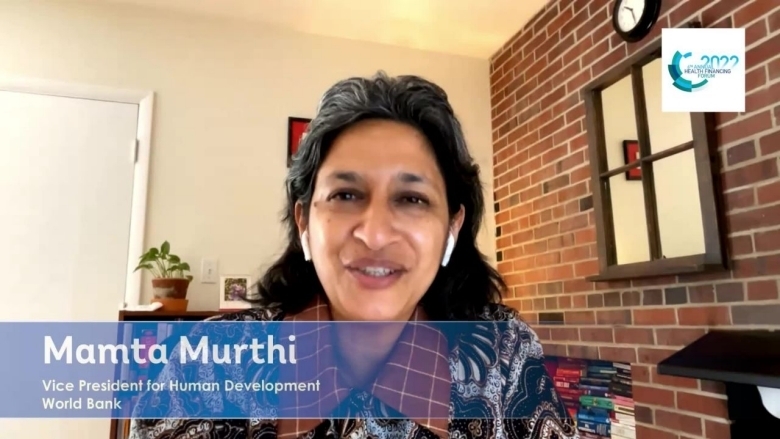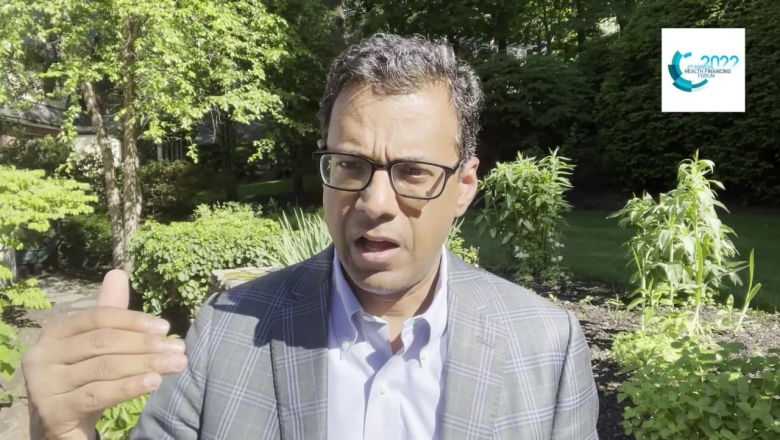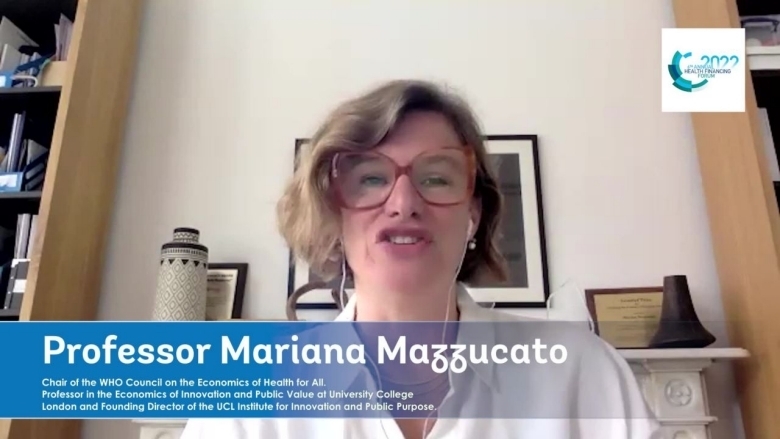June 16th
8:00-9:30 EST: Adam Wagstaff Memorial Lecture
Recording: English | French
Speaker:
- Prof. Justice Nonvignon, Head, Health Economics Programme, Africa Centres for Disease Control and Prevention, Ghana
- Juan Pablo Uribe, Global Director of the Health, Nutrition and Population Global Practice
- Owen O'donnell, Professor, Erasmus University Rotterdam
- Mario Vera-Fernandez, Professor of Economics, University College London
- Radhika Jain, Lecture in Health Economics, University College London
Since 2020 the AHFF has held the Adam Wagstaff Memorial Lecture in honor of Adam Wagstaff, research manager at the World Bank, professor of economics, mentor, and associate editor of the Journal of Health Economics. During this year’s session, chaired by Juan Pablo Uribe, Global Director of the Health, Nutrition and Population Global Practice, awardees of the Adam Wagstaff Award (AWA) for Outstanding Research on the Economics of Healthcare Financing and Delivery in Low- and Middle-Income Countries, established by IHEA, will be invited to participate. Winners for the AWA 2020 are Giancarlo Buitrago and Radhika Jain.
10:00–11:30 EST : Plenary Session 5- Financing Comprehensive PHC and Q&A
Recording: English | French
Meeting docs: Presentation | Background Note
Speakers:
- Ahmed Elsobky, Deputy Minister of Health and Population and Chairman, General Authority of Healthcare (GAHC), Egypt
- Christoph Kurowski, Global Lead of Health Financing Global Solutions Group, World Bank
- Oyebanji Filani, Commissioner, Ministry of Health, Nigeria
- Dr. Mahlil Ruby, Director of Planning, Development and Risk Management, Indonesian Agency of Social Security Administrator on Health Program (BPJS Kesehatan), Indonesia
- Tamar Gabunia, First Deputy Minister, Ministry of Internally Displaced People from the Occupied Territories, Labor, Health and Social Affairs, Georgia
- Carolina Casullo, National Director of Health Systems Strengthening at the Ministry of Health, Argentina
- Dr. Liisa-Maria Voipio-Pulkki, Chief Medical Officer and Senior Adviser in the Permanent Secretary’s Cabinet at the Finish Ministry of Social Affairs and Health, Finland
Drawing on a first set of case studies, this session will highlight the scope, trade-offs, and priorities among comprehensive PHC activities from a bottom-up health system perspective as well as identify the local organizations and institutions responsible for their delivery. The session will also examine the financing and financing arrangements in different contexts for these activities and organizations and look at how these can be strengthened to attain a well-functioning, comprehensive PHC.
11:30–13:00 EST : Lunch
11:45–12:45 EST : Lunch event : Hot Topics in Immunization Financing
Recording: English
Speakers:
- Kent Ranson, Senior Economist, Health, Nutrition and Population Global Practice, World Bank, Switzerland
- Lizna Makhani, Manager, Gavi, Switzerland
- Sarah Alkenbrack, Senior Health Economist, Health, Nutrition and Population Global Practice, World Bank, USA
- Ulla Griffith, Senior Advisor in Health Economics, UNICEF, USA
- Prof. Justice Nonvignon, Head, Health Economics Programme, Africa Centres for Disease Control and Prevention, Ghana
- Helen Saxenian, Senior Fellow, Results for Development
- Dr.Meerjady Sabrina Flora, Additional Director General, Directorate of Health Services, Ministry of Health and Family Welfare, Bangladesh
13:00–14:30 EST : Side Event 6-Health Taxes
Recording: English | French
Speakers:
- Toomas Palu, Advisor, World Bank
- Dr. Evan Blecher, Economist, World Bank
- Mai Farid, Assistant Minister of Finance for Economic Justice Board Advisor for the Universal Health Insurance Authority, Egyptian Ministry of Finance
- Dr. Eduardo Gonzalez-Pier, Senior Technical Director Health Financing HP + Program, Palladium Global Group, Mexico
- Dr. Tessa Edejer, Acting Director of Health Systems Governance and Financing, World Health Organization
- Adanna Chukwuma, Senior Health Economist, World Bank
- Ceren Ozer, Senior Economist, Domestic Resource Mobilization Unit, World Bank
- Alan Fuchs, Senior Economist, Poverty and Equity Global Practice, World Bank
About 50 LMICs will not recover economically to pre-pandemic levels before 2026 putting at risk governments’ ability to finance essential expenditures, including health. Public debt globally is expected to be 11% of GDP higher compared to pre-pandemic levels requiring larger set-asides for debt servicing further constraining effective fiscal space. This is all in the context of countries still responding to a pandemic, having to invest in strengthening health systems for resilience and preparedness, and recover lost gains in making progress towards SDG3 and UHC. Stepping up and spending 1% more of GDP on PHC as called on by UHC GMRs will be difficult. This session will explore the feasibility of health taxes on tobacco, alcohol, and SSBs as an option to simultaneously expand governments’ fiscal space and improve health outcomes. Expanding fiscal space includes increasing tax revenues and reducing expenditures related to tobacco, alcohol, and SSB use (e.g., healthcare, public safety, etc.). Earmarking of revenues for health may be viable in some jurisdictions and may also be important to increase political viability and/or public acceptability.
15:00 – 16:30 EST : Side Event 7—Sustainable and Gender Equitable Capacity Building for Health Financing in Africa
Recording: English | French
Speakers:
- Prof. Justice Nonvignon, Head, Health Economics Programme, Africa Centres for Disease Control and Prevention, Ghana
- Oludare Bodunrin, Acting Director-of Strategic Purchasing Africa Resource Centre, Amref Health Africa, Kenya
- Associate Prof. John Ataguba, Executive Director, Africa Health Economics Association (AfHEA)
- Eva Pascoal, Health Systems Advisor, World Health Organization
- Matiko Riro, Regional Technical Advisor, Health Financing, Clinton Health Access Initiative (CHAI)
The skills and human resources required to perform health financing and health systems functions are growing more and more complex. In some areas and countries, approaches to strengthening capacity and training remain heavily reliant on external funding and expertise and have not been sufficiently sustainable and grounded in locally-defined needs and resources. There is a need for a robust understanding of the skills gap, career paths, and appropriate educational, training, and mentorship models to fill these gaps. Filling gaps means not only producing more expertise in diverse areas from health economics to management to data science but addressing gender equity in key areas.
This session will be a roundtable discussion including invited participants, primarily Africa-based academic, government, and regional organizations, to explore the challenges and potential solutions to strengthen country-level and regional capacity in a sustainable way by creating an alliance of regional actors.



